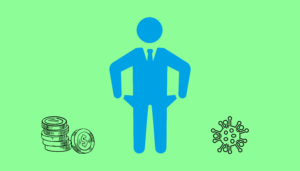 The study conducted by “Die Armutskonferenz”, a network of over 40 social organizations, educational and research institutions working on poverty eradication, has examined the effects of the Corona crisis on the everyday life of people at risk of and affected by poverty in Austria.
The study conducted by “Die Armutskonferenz”, a network of over 40 social organizations, educational and research institutions working on poverty eradication, has examined the effects of the Corona crisis on the everyday life of people at risk of and affected by poverty in Austria.
It pays particular attention to those highly vulnerable groups of people who have had an income below or close to the poverty threshold for a long time and/or are socially excluded. But it also examines the situation of those groups which have recently fallen into (or close to) poverty as a result of the COVID-19 pandemic.
The results of the qualitative survey reveal the concrete effects of the pandemic and the lockdown. They show which state and private support measures have taken effect and where there are gaps to date. They list a number of starting points for the design of meaningful strategies to provide future assistance offers. The data indicate that the extremes of the Corona crisis brought to light social grievances with a clarity that is sometimes painful, particularly in the case of the precarious working conditions of self-employed or temporary workers.
“I am not only worried about myself, but also about my children. They are not so super, super on their toes, they are clever and sweet and well-socialised, but I simply have much more fears about the future since Corona. (…) I just don’t see where and how they would find a place. I don’t wish for my children to have to make their living in a society where everything is at the bottom of the ladder.”
You can read the full study on “Die Armutskonferenz”‘s website.
To know more about the impact of COVID-19 on diaconal organisations, please have a look at our latest report.